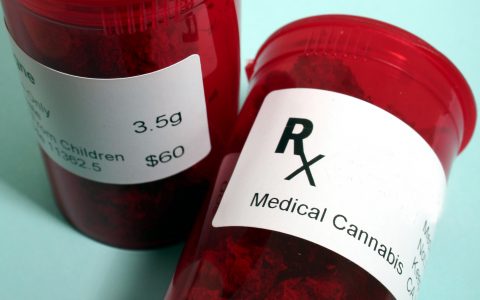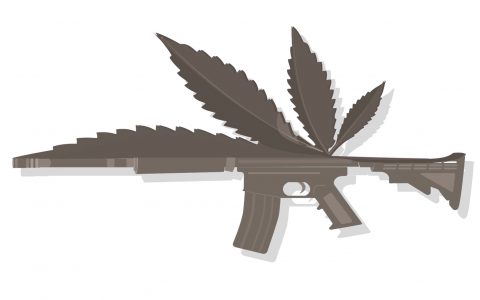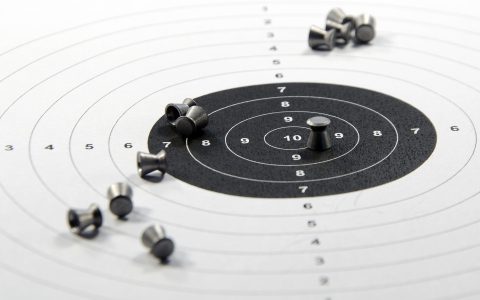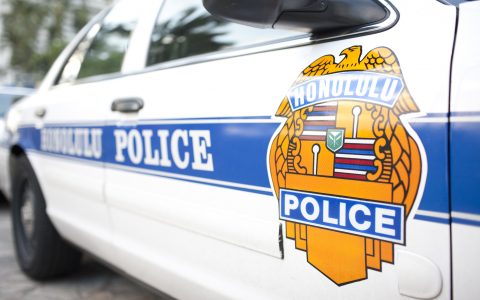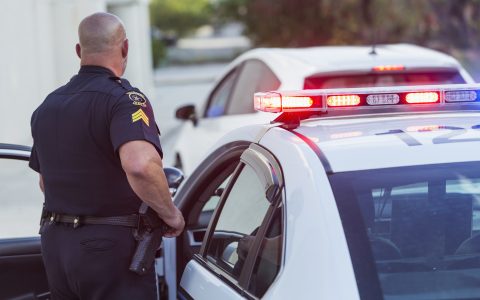Baron23
Well-Known Member
http://www.tahoedailytribune.com/news/marijuana/marijuana-use-muddies-nevada-federal-gun-laws/
The interplay of guns and marijuana, particularly medicinal, has raised a variety of issues for everyone from gun dealers and law enforcement to marijuana users.
Since those questions involve not only federal but state law and local ordinances, it’s complicated.
The first thing hunters, sportsmen and other gun owners probably don’t know but need to know is that, if you have a medical marijuana card, you won’t be allowed to buy a gun.
Second, if you use pot, forget about a concealed weapons permit.
And, if you are high and have a gun on your person, you’re guilty of a misdemeanor. By the way, that law also applies to having a gun on you while drunk.
To buy a gun, everyone has to fill out a Bureau of Alcohol, Tobacco, Firearms and Explosives TF Form 4473, the Firearms Transaction Record.
Because states have been legalizing medical and recreational marijuana use, the Justice Department last year added language to the section if the applicant is “an unlawful user or addicted to marijuana” or other drugs. Question 11e on the form was amended to add: “Warning: the use or possession of marijuana remains unlawful under federal law regardless of whether it has been legalized or decriminalized for medicinal or recreational purposes in the state where you reside.”
The form goes on to state that anyone who answers yes to that question “is prohibited from purchasing or receiving a firearm.”
The simple answer might seem to be just answer question 11e “no.” A recreational user with no criminal history could do that but there is a record of who has a medical marijuana card. That information is confidential even from law enforcement but, for cause, could be obtained by a court order.
Also, even recreational users need to know that making a false statement on that application is a felony punishable by up to five years in federal prison.
It’s equally inadvisable to have some one else buy you a gun or to buy one for another person. According to Nevada Department of Public Safety Records Bureau Chief Mindy McKay that is what they call a “straw purchase” which is also a federal felony punishable by potentially serious prison time.
Importantly, neither the form nor the accompanying statutes, regulations and instructions say that person is prohibited from “possessing” a firearm that he or she may have purchased earlier, only from buying or receiving a weapon.
In other words, if your gun purchase is rejected, no one will show up at the front door demanding surrender of your other weapons.
If, however, there’s something really suspicious about you, the gun dealer could contact the state’s Point of Contact Firearms Program about doing an investigation. Admittedly, that’s unlikely.
McKay said gun dealers “are the first line of defense when deciding whether or not to initiate a background check.” In fact, reputable gun dealers have repeatedly said they have refused to sell some one a weapon for a variety of reasons.
The ban on medical pot users buying a gun isn’t permanent. According to McKay, it’s “a temporary prohibitor” that expires a year after the expiration or surrender of the medical marijuana card.
State law is equally clear that marijuana and other drug users can’t get a permit to carry a concealed weapon.
But, under Nevada law, that too isn’t a permanent disqualifier. It bars some one from getting a CCW permit if they have been convicted of DUI or committed to treatment for substance abuse within the past five years. The rule applies to alcohol as well as drug use.
State law is also clear that physical possession of a gun while intoxicated — on alcohol or drugs including pot — is illegal. It’s a misdemeanor that could result in confiscation of the weapon. NRS202 states that the firearm is subject to forfeiture only if, “the firearm is brandished, aimed or otherwise handled by the person in a manner which endangered others.” That conviction would likely bar some one from purchasing a weapon.
That statute, however, doesn’t define pot “intoxication,” the definition of which was changed by the 2015 Legislature to require testing for active THC levels in the blood.
McKay said detailed information on concealed weapons permits is available from local sheriff’s who issue the permits. Some of the rules vary from county to county.
In addition, owners seeking to get their gun back should contact the local law enforcement agency that confiscated it.
She said her division gets frequent questions and comments about whether the rules violate someone’s Second Amendment rights. McKay said the records and compliance division administers the programs according to federal and state laws, that they don’t make the laws. She said anyone who believes their rights are being infringed upon should contact their federal and local elected officials.
So, let's be clear. The language on the Form 4473 was not passed in that form as part of any legislation issued from Congress and signed by a President. It is an administratively generated regulation by the ATF (who can suck a number of my appendages).
To me, its is the height of lunacy to believe that a rule promulgated by a bureaucracy can in any way overturn an enumerated individual right and this complete and utter horseshit needs to be tested in court. SCOTUS...do you fucking job and quit dancing around 2nd amendment issues.
The interplay of guns and marijuana, particularly medicinal, has raised a variety of issues for everyone from gun dealers and law enforcement to marijuana users.
Since those questions involve not only federal but state law and local ordinances, it’s complicated.
The first thing hunters, sportsmen and other gun owners probably don’t know but need to know is that, if you have a medical marijuana card, you won’t be allowed to buy a gun.
Second, if you use pot, forget about a concealed weapons permit.
And, if you are high and have a gun on your person, you’re guilty of a misdemeanor. By the way, that law also applies to having a gun on you while drunk.
To buy a gun, everyone has to fill out a Bureau of Alcohol, Tobacco, Firearms and Explosives TF Form 4473, the Firearms Transaction Record.
Because states have been legalizing medical and recreational marijuana use, the Justice Department last year added language to the section if the applicant is “an unlawful user or addicted to marijuana” or other drugs. Question 11e on the form was amended to add: “Warning: the use or possession of marijuana remains unlawful under federal law regardless of whether it has been legalized or decriminalized for medicinal or recreational purposes in the state where you reside.”
The form goes on to state that anyone who answers yes to that question “is prohibited from purchasing or receiving a firearm.”
The simple answer might seem to be just answer question 11e “no.” A recreational user with no criminal history could do that but there is a record of who has a medical marijuana card. That information is confidential even from law enforcement but, for cause, could be obtained by a court order.
Also, even recreational users need to know that making a false statement on that application is a felony punishable by up to five years in federal prison.
It’s equally inadvisable to have some one else buy you a gun or to buy one for another person. According to Nevada Department of Public Safety Records Bureau Chief Mindy McKay that is what they call a “straw purchase” which is also a federal felony punishable by potentially serious prison time.
Importantly, neither the form nor the accompanying statutes, regulations and instructions say that person is prohibited from “possessing” a firearm that he or she may have purchased earlier, only from buying or receiving a weapon.
In other words, if your gun purchase is rejected, no one will show up at the front door demanding surrender of your other weapons.
If, however, there’s something really suspicious about you, the gun dealer could contact the state’s Point of Contact Firearms Program about doing an investigation. Admittedly, that’s unlikely.
McKay said gun dealers “are the first line of defense when deciding whether or not to initiate a background check.” In fact, reputable gun dealers have repeatedly said they have refused to sell some one a weapon for a variety of reasons.
The ban on medical pot users buying a gun isn’t permanent. According to McKay, it’s “a temporary prohibitor” that expires a year after the expiration or surrender of the medical marijuana card.
State law is equally clear that marijuana and other drug users can’t get a permit to carry a concealed weapon.
But, under Nevada law, that too isn’t a permanent disqualifier. It bars some one from getting a CCW permit if they have been convicted of DUI or committed to treatment for substance abuse within the past five years. The rule applies to alcohol as well as drug use.
State law is also clear that physical possession of a gun while intoxicated — on alcohol or drugs including pot — is illegal. It’s a misdemeanor that could result in confiscation of the weapon. NRS202 states that the firearm is subject to forfeiture only if, “the firearm is brandished, aimed or otherwise handled by the person in a manner which endangered others.” That conviction would likely bar some one from purchasing a weapon.
That statute, however, doesn’t define pot “intoxication,” the definition of which was changed by the 2015 Legislature to require testing for active THC levels in the blood.
McKay said detailed information on concealed weapons permits is available from local sheriff’s who issue the permits. Some of the rules vary from county to county.
In addition, owners seeking to get their gun back should contact the local law enforcement agency that confiscated it.
She said her division gets frequent questions and comments about whether the rules violate someone’s Second Amendment rights. McKay said the records and compliance division administers the programs according to federal and state laws, that they don’t make the laws. She said anyone who believes their rights are being infringed upon should contact their federal and local elected officials.
So, let's be clear. The language on the Form 4473 was not passed in that form as part of any legislation issued from Congress and signed by a President. It is an administratively generated regulation by the ATF (who can suck a number of my appendages).
To me, its is the height of lunacy to believe that a rule promulgated by a bureaucracy can in any way overturn an enumerated individual right and this complete and utter horseshit needs to be tested in court. SCOTUS...do you fucking job and quit dancing around 2nd amendment issues.

